Video
Sign up for our newsletter
We summarize the week's scientific breakthroughs every Thursday.
-
 Quantum Physics
Quantum PhysicsQuantum ‘echoes’ reveal the potential of Google’s quantum computer
Google says its quantum computer achieved a verifiable calculation that classic computers cannot. The work could point to future applications.
-
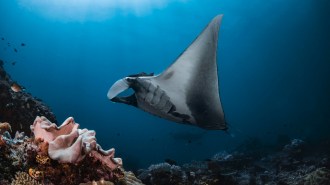 Animals
AnimalsScientists and fishers have teamed up to find a way to save manta rays
Thousands of at-risk manta and devil rays become accidental bycatch in tuna fishing nets every year. A simple sorting grid could help save them.
-
 Health & Medicine
Health & MedicineMost women get uterine fibroids. This researcher wants to know why
Biomedical engineer Erika Moore investigates diseases that disproportionately affect women of color.
-
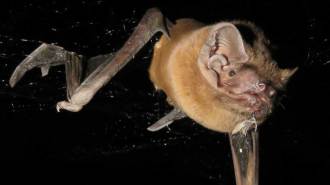 Animals
AnimalsMic’d bats reveal midnight songbird attacks
Sensor data reveal greater noctule bats chasing, catching and chewing on birds during high-altitude, nighttime hunts.
-
 Physics
PhysicsHere’s what might spark ghostly will-o’-the-wisps
Chemists have discovered tiny zaps of electricity moving between “swamp-gas” bubbles. Could they ignite methane gas to glow as dancing blue flames?
By Laura Allen -
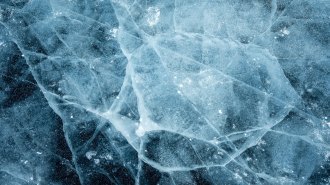 Physics
PhysicsIce is more flexible than you think, a new nano-movie shows
Scientists have filmed nanoscale ice crystals adapting to trapped air bubbles without losing structural integrity.
-
 Animals
AnimalsTug or fetch? Some dogs sort toys by how they are used
Dogs that easily learn the names of toys might also mentally sort them by function, a new example of complex cognitive activity in the canine brain.
-
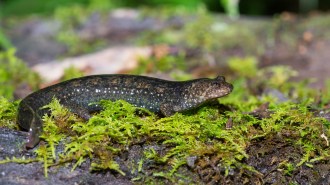 Animals
AnimalsJust like humans, many animals get more aggressive in the heat
From salamanders to monkeys, many species get more violent at warmer temperatures — a trend that may shape their social structures as the world warms.
-
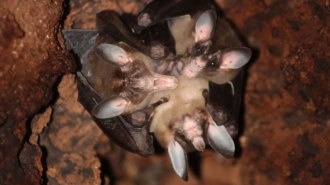 Animals
AnimalsThese giant carnivorous bats hug, cuddle — and even share dinner
Infrared cameras in Costa Rica revealed that the world’s largest carnivorous bat maintains close social bonds through wing wraps and prey sharing.
By Jay Kakade - Astronomy
A dying star revealed its heart
Before exploding, a star shed most of its layers, giving a glimpse at a massive star’s deep interior. The event may represent a new kind of supernova.
-
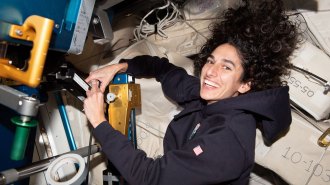 Space
SpaceAstronauts need oxygen. Magnets could help
Adding a magnet could simplify the process of producing oxygen in space, making a crewed mission to Mars more feasible.
-
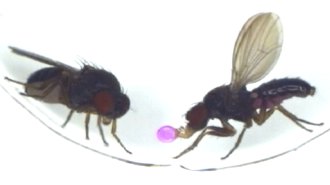 Animals
AnimalsA single protein makes lovesick flies spill their guts
Producing a male-specific protein in digestion-related neurons may have led to the evolution of an odd “romantic” barfing behavior in one species of fruit flies.